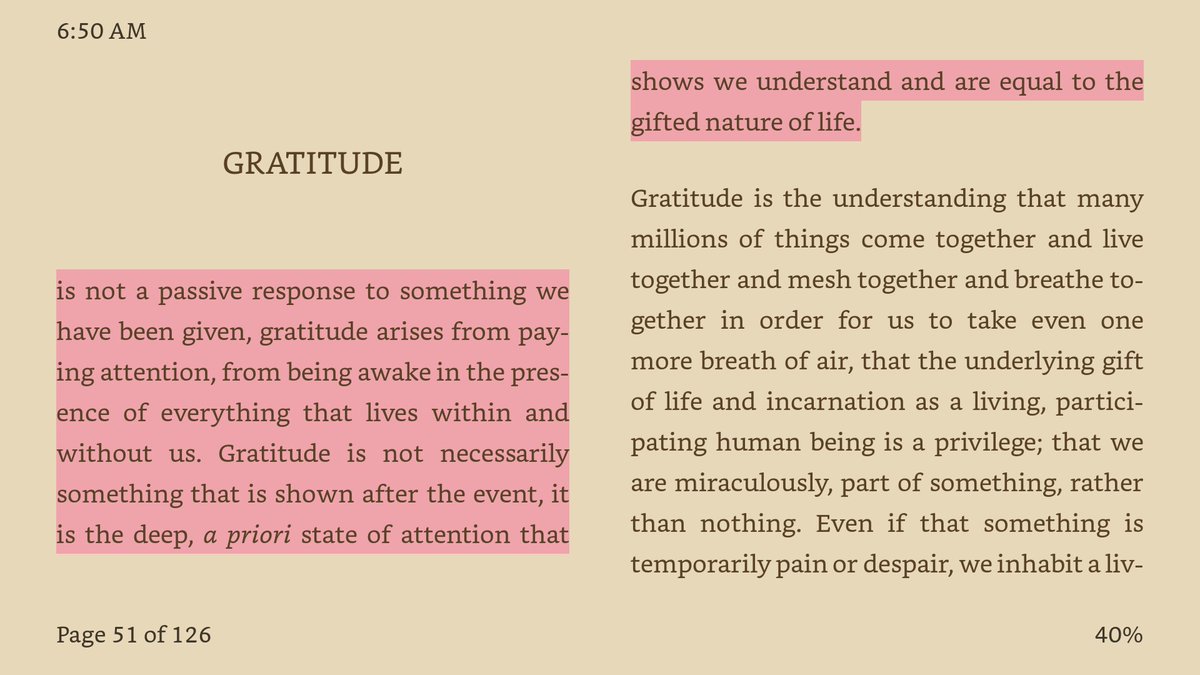
1. Huzzah and Hurrah! attn @RoamResearch fans and #roamcult
@dvargas92495 has written jScript that restores value to
"attribute tables" - a partially developed feature that seemed promising - but had a flaw, rendering it hard-to-use.
That flaw seems to have been fixed -->
@dvargas92495 has written jScript that restores value to
"attribute tables" - a partially developed feature that seemed promising - but had a flaw, rendering it hard-to-use.
That flaw seems to have been fixed -->
2. You can now use "Attribute Tables" to bring up auto-populating, SORTABLE tables, based on lines of metadata - equally-indented series of "attributes" (defined by syntax "foo double-colon", like this - "foo::").
What can you do with this?
Start with a simple habit-tracker.
What can you do with this?
Start with a simple habit-tracker.
3. Under any given daily note, affix the things you are tracking: (e.g.),
(NOTE: at the SAME level of indent, 1 below page title)
Exercise::
Reading::
Music::
and jot whatever you want into any of the fields following the "::".
Type: {{attr-table::[[exercise]]}} , and VOILA
(NOTE: at the SAME level of indent, 1 below page title)
Exercise::
Reading::
Music::
and jot whatever you want into any of the fields following the "::".
Type: {{attr-table::[[exercise]]}} , and VOILA

4. (One cool/useful thing about this, by the way, is that,
Now that block-level templating is possible, using "block references",
You can have a standard "set" of columns, that you pull up whenever you need them - simply by using the "apply children as text" function.)
Now that block-level templating is possible, using "block references",
You can have a standard "set" of columns, that you pull up whenever you need them - simply by using the "apply children as text" function.)
5. Then you basically have a self-populating table, that you can add to at any time, and from anywhere.
I'll post a fun example of this later, but first just wanted to 1st give the shoutout of thanks to @dvargas92495 for doing this.
Early adopters, do your thing!
Make magic!
I'll post a fun example of this later, but first just wanted to 1st give the shoutout of thanks to @dvargas92495 for doing this.
Early adopters, do your thing!
Make magic!
6. Here is David's tweet in which he links to the javaScript that he wrote:
https://twitter.com/dvargas92495/status/1313897302201958401?s=20
7. One small comment - testing it out, it works fine,
BUT be careful not to have multiple "sorts" going at the same time.
It can appear unresponsive, if you try to simultaneously "sort" on different table columns, in different ways.
cc @dvargas92495 - FYI.
BUT be careful not to have multiple "sorts" going at the same time.
It can appear unresponsive, if you try to simultaneously "sort" on different table columns, in different ways.
cc @dvargas92495 - FYI.
8. Absolutely gotta add this one in this thread - @shawnpmurphy8 created a piggy-back add-on (you need @dvargas92495 's one running first)
that adds in filtering capacities to the table.
Great teamwork, guys!
that adds in filtering capacities to the table.
Great teamwork, guys!
https://twitter.com/roamhacker/status/1314879840064024579?s=20
• • •
Missing some Tweet in this thread? You can try to
force a refresh







